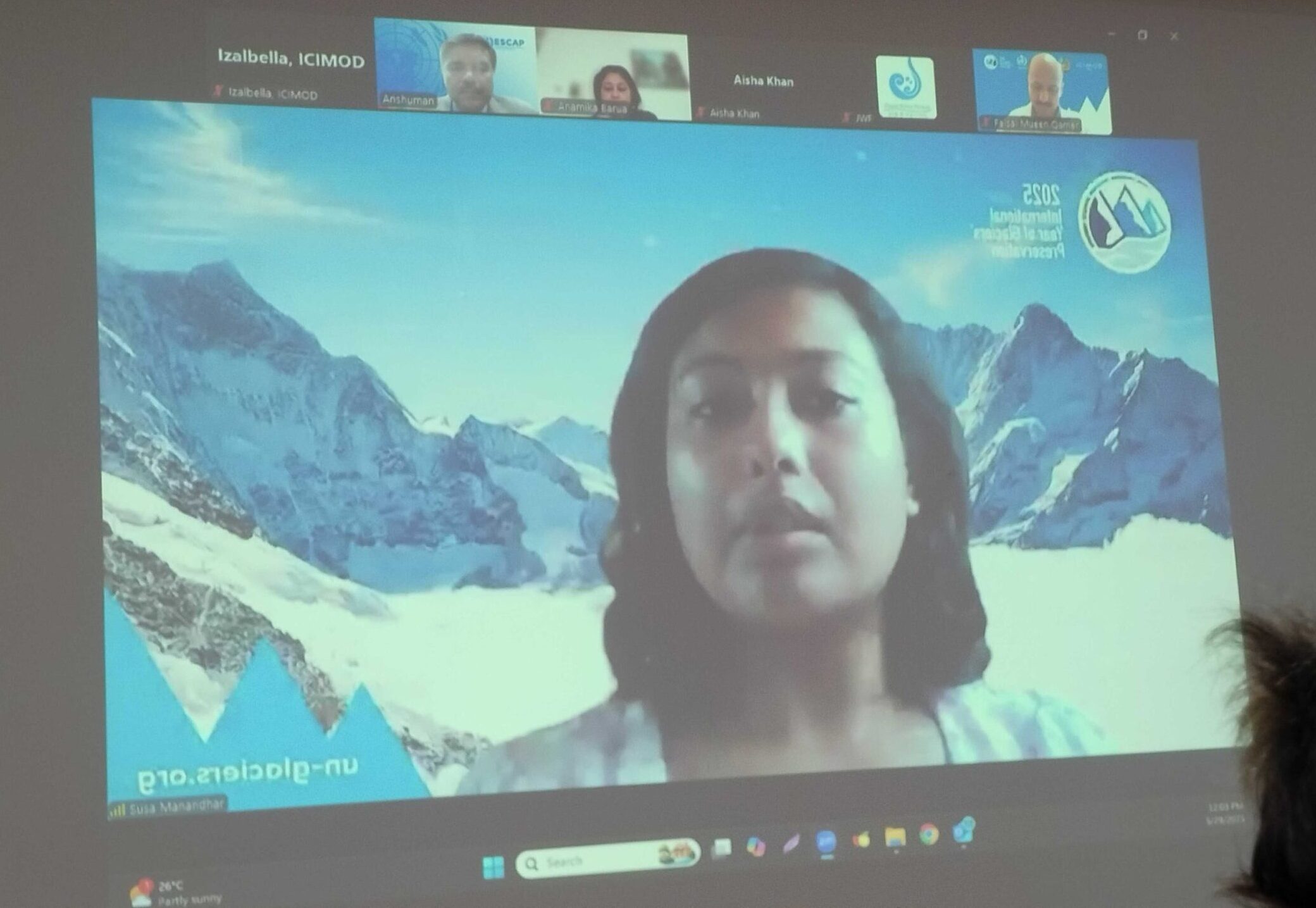March 22nd is World Water Day, an annual global observance that raises awareness about water-related issues and encourages people to take action to address global water challenges. This year, the theme “Leveraging Water for Peace” underscores the critical importance of effective water management through conservation efforts, sound policy interventions, and good governance. As part of NNWWW 2024 and The Small Earth Nepal (SEN) being the Secretariat, World Water Day was celebrated at Hotel Radisson, Kathmandu, with over 100 participants in attendance, including the Honorable Minister Shakti Bahadur Basnet, Ministry of Energy, Water Resources, and Irrigation, secretaries from relevant government agencies, and esteemed representatives from international and national non-governmental organizations.
The program was chaired by Ms. Sarita Dawadi, Secretary, WECS, and facilitated by Dr. Kapil Gnawali, Senior Divisional Engineer, WECS. Dr. Gnawali welcomed the guests and participants, providing an overview of the day’s agenda, the background of NNWWW, and its activities.
The highlight of the day was the joint launch of the UN World Water Development Report (UNWWDR) by Dr. Dhiraj Pradhananga (Associate Professor at TU, President at The Small Earth Nepal & Chairholder at UNESCO Mountain Water Sustainability) and Mr. Michael Croft (Head of Office and Representative to Nepal, UNESCO). Before the launch, Mr. Croft elaborated on UNESCO’s role in representing the International Hydrological Programme (IHP) and its significance in commemorating World Water Day. He also provided a concise explanation of how the UNWWDR reflects water governance and introduced Dr. Dhiraj Pradhananga as a UNESCO Chairholder in Mountain Water Sustainability. Subsequently, Dr. Pradhananga delivered a brief presentation highlighting the key messages from the UNWWDR.
Dr. Pradhananga emphasized that the report marked the commencement of the launch program in Nepal and would continue in the coming years. He presented the essential role of water not only for domestic use but also for energy industries, livelihoods, and ecosystems. He highlighted the increasing water demand each year and stressed the critical need for sound management and cooperation, particularly in light of climate change’s intensifying impact on water resources. Dr. Pradhananga also addressed the impact on glaciers as water towers and the need for advocacy in this regard. He mentioned the International Year of Glacier’s Preservation (IYOG), which will commence in 2025, with a global celebration on March 21st to underscore the importance of the cryosphere and glaciers for water sustainability. The UNWWDR, states how transboundary cooperation is essential, requiring effective coordination and collaboration among local, regional, and global stakeholders.
Similarly, advancements are required in science, technology, and information. Reports highlight how the expansion of meteorological stations, the promotion of low-cost monitoring technologies such as citizen science, and the empowerment and capacity-building of women to further strengthen water management efforts. Reports highlighted the need to prioritize financing for water issues, recognizing the inextricable link between water and prosperity.
The Minister of Energy, Water Resources, and Irrigation, Hon. Shakti Bahadur Basnet, spoke on the importance of water and stressed that the state cannot function without the efficient use of water for irrigation, agriculture, electricity, and other water management purposes. “Despite the abundance of natural resources in our country, we have to face many challenges in the management of natural resources and we need to integrate the issue of conservation, distribution and consumption and make related agencies responsible,” he stated.
The inaugural program included sessions on topics including “Leveraging Water for Peace” and “Strengthening capacities of local governments in rural Nepal in climate risk-informed WASH service provision,” in addition to the publication of the report.
The session continued with special guests’ remarks, underscoring the urgent need for enhanced collaboration, cooperation, research, and capacity building. They stressed the importance of hosting more conferences and taking practical action on the ground. Each speaker emphasized the criticality of water and underscored that effective management of water resources is key to achieving prosperity and peace in societies and communities at national and international levels. Government officials highlighted the ongoing efforts of the government in developing policies and enhancing water resources governance for sustainable management and harnessing the potential of Nepal’s water resources. The program concluded with closing remarks from Ms. Dawadi.




